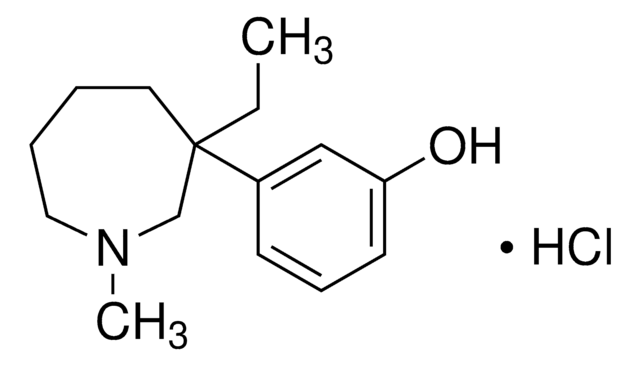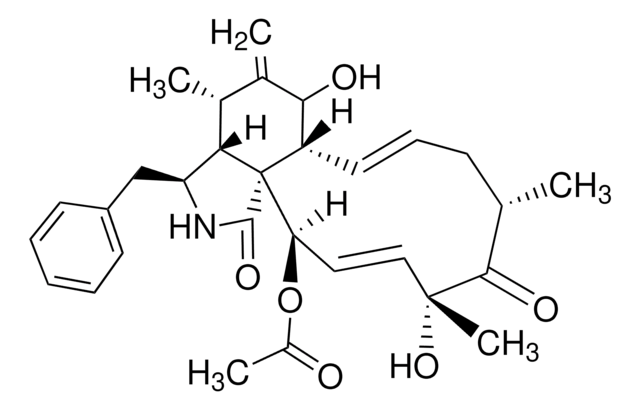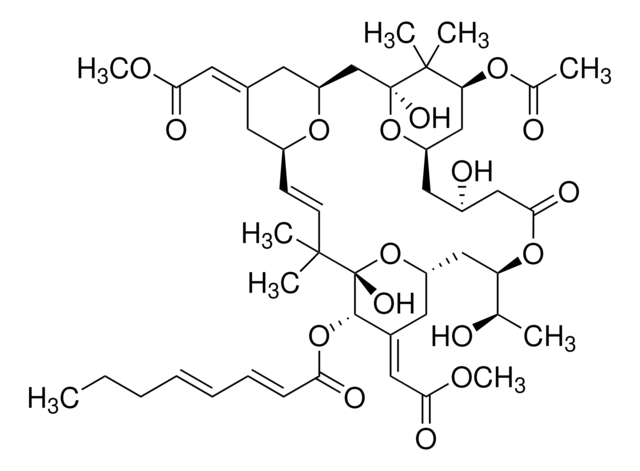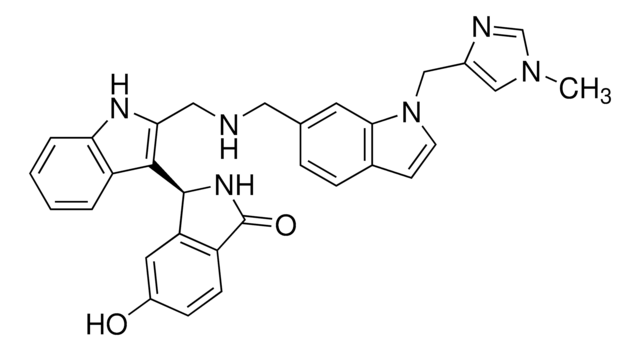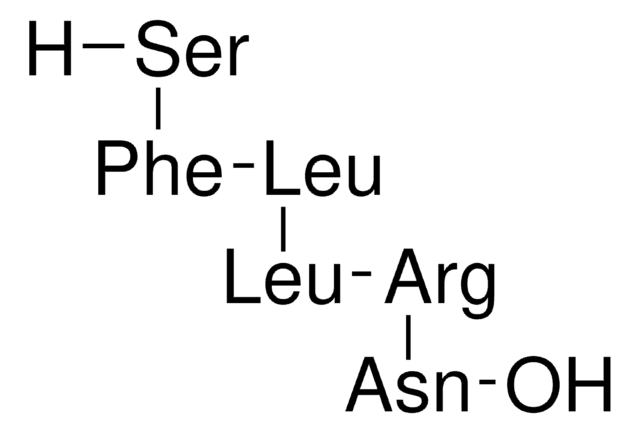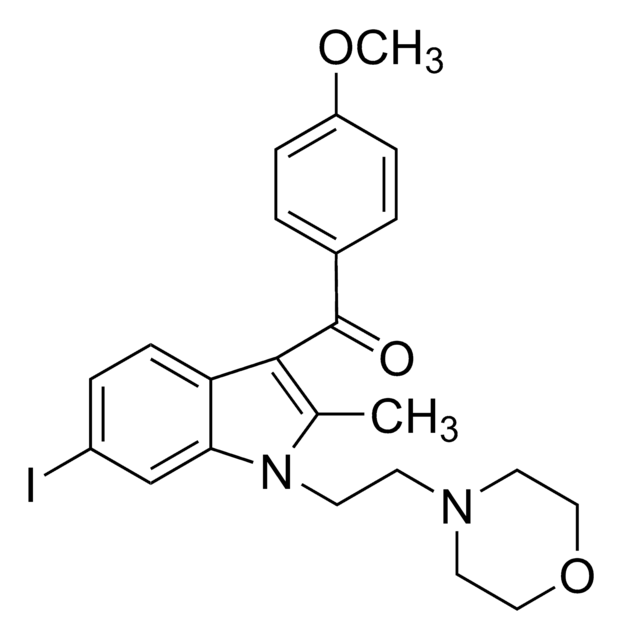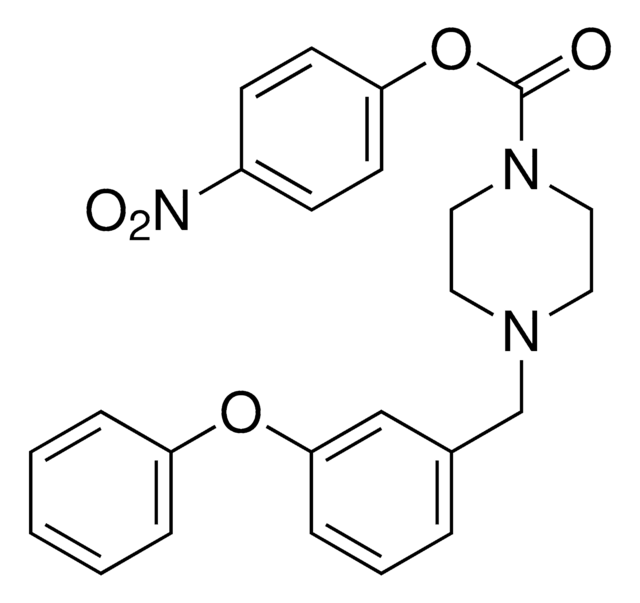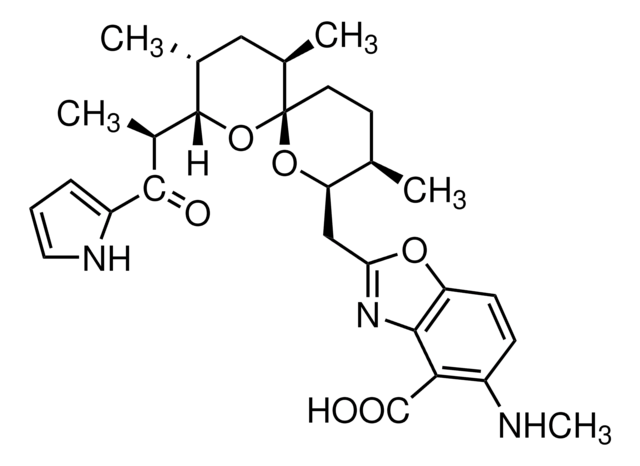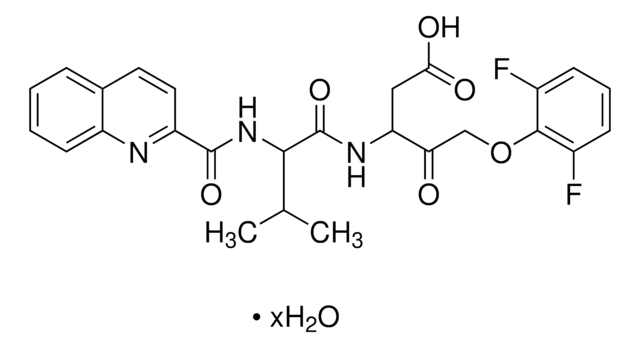M6690
MDL 28170
≥90% (TLC)
Synonym(s):
Calpain Inhibitor III
About This Item
Recommended Products
Assay
≥90% (TLC)
composition
Peptide Content, >90%
solubility
DMSO: 26 mg/mL
H2O: insoluble
methanol: soluble
shipped in
wet ice
storage temp.
2-8°C
SMILES string
[H]C(=O)C(Cc1ccccc1)NC(=O)[C@@H](NC(=O)OCc2ccccc2)C(C)C
InChI
1S/C22H26N2O4/c1-16(2)20(24-22(27)28-15-18-11-7-4-8-12-18)21(26)23-19(14-25)13-17-9-5-3-6-10-17/h3-12,14,16,19-20H,13,15H2,1-2H3,(H,23,26)(H,24,27)/t19?,20-/m0/s1
InChI key
NGBKFLTYGSREKK-ANYOKISRSA-N
Gene Information
human ... CAPN1(823) , CAPN2(824)
Amino Acid Sequence
Application
- to study its effects on neuroinflammation and necroptosis in rat model of cardiac arrest
- to analyze its effects on the degradation of neuronal nitric oxide synthase (nNOS) in beef semimembranosus muscle
- to study its protective effects against traumatic brain injury and survival of bone marrow-derived mesenchymal stem cells (BMSCs) in rat brain
Biochem/physiol Actions
Storage Class Code
11 - Combustible Solids
WGK
WGK 3
Flash Point(F)
Not applicable
Flash Point(C)
Not applicable
Personal Protective Equipment
Certificates of Analysis (COA)
Search for Certificates of Analysis (COA) by entering the products Lot/Batch Number. Lot and Batch Numbers can be found on a product’s label following the words ‘Lot’ or ‘Batch’.
Already Own This Product?
Find documentation for the products that you have recently purchased in the Document Library.
Customers Also Viewed
Related Content
n proliferating cells, the cell cycle consists of four phases. Gap 1 (G1) is the interval between mitosis and DNA replication that is characterized by cell growth. Replication of DNA occurs during the synthesis (S) phase, which is followed by a second gap phase (G2) during which growth and preparation for cell division occurs. Together, these three stages comprise the interphase phase of the cell cycle. Interphase is followed by the mitotic (M) phase.
Our team of scientists has experience in all areas of research including Life Science, Material Science, Chemical Synthesis, Chromatography, Analytical and many others.
Contact Technical Service